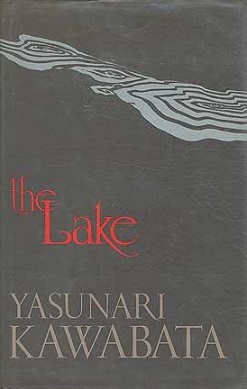Page most commonly refers to:
Providence often refers to:
Kane or KANE may refer to:
A blood brother is a male who swears loyalty to another male.
Sati or SATI may refer to:

The Lake is a short 1954 novel by the Japanese writer Yasunari Kawabata. This book tells the story of a former schoolteacher named Gimpei Momoi. The Lake was adapted into a film by Yoshishige Yoshida under the title Woman of the Lake.
August is the eighth month of the year.
An afterimage is an optical illusion that occurs after looking away from a direct gaze at an image.

The Committee on Credentials is a 1916 American silent film featuring Harry Carey. It is based on the novel The Pride of Palomar by Peter Bernard Kyne. It follows the protagonist Ballrat Bob, who tries to protect an acquaintance and squatter, Clem, from gambling away all of his money.
A virus is a submicroscopic infectious agent that replicates only inside the living cells of an organism.
Nu gaze refers to a form of alternative rock that originated in the 2000s that is directly influenced by the primarily British shoegaze scene of the late 1980s and early 1990s. A renewed interest in shoegaze occurred in the early 2000s when bands such as Maps, My Vitriol, Silversun Pickups, and The Radio Dept. first emerged across both sides of the Atlantic. The origin of the moniker "nu gaze" has been credited to an interview in 2001 with My Vitriol frontman Som Wardner in which he denied his band was shoegaze, instead stating humorously, "I guess you could call us nu gaze".

In critical theory, philosophy, sociology, and psychoanalysis, the gaze, in the figurative sense, is an individual's awareness and perception of other individuals, other groups, or oneself. The concept and the social applications of the gaze have been defined and explained by existentialist and phenomenologist philosophers. Jean-Paul Sartre described the gaze in Being and Nothingness (1943). Michel Foucault, in Discipline and Punish: The Birth of the Prison (1975), developed the concept of the gaze to illustrate the dynamics of socio-political power relations and the social dynamics of society's mechanisms of discipline. Jacques Derrida, in The Animal That Therefore I Am (1997), elaborated upon the inter-species relations that exist among human beings and other animals, which are established by way of the gaze.
A root is the part of a plant, generally underground, that anchors the plant body, and absorbs and stores water and nutrients.

The Unicorn is a novel by Iris Murdoch. Published in 1963, it was her seventh novel.
This page is based on this
Wikipedia article Text is available under the
CC BY-SA 4.0 license; additional terms may apply.
Images, videos and audio are available under their respective licenses.



